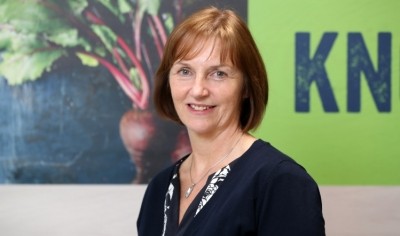Business leaders
Facing your primal fears

An emerging category with little discernible competition, the perfect product and the right message to consumers. All the elements were in place for on-the-go snacks brand Primal Pantry to generate some hefty sales. But then the category drew a lot of attention, creating a busier fixture and a lot of competition.
Set up by Suzie Walker and launched onto the market in 2014, Primal Pantry boasted the ultimate paleo on-the-go offering at a time when there wasn’t much happening in this sector. Walker says it was a ripe opportunity. “There were no exciting products in the free-from category and people were crying out for something different, especially in the on-the-go sector.”
Walker, who has held roles at Nestlé, Innocent and Little Dish, became a nutritionist in 2008, building up her own practice, and it was her work in this field that led her to create Primal Pantry.
Launching into the market
She had struggled to get appropriate on-the-go snacks for her clients, so was making paleo energy balls for them. When these clients suggested she try and sell them, she enlisted a business partner to help launch into the fast-moving consumer goods (FMCG) market.
They hired a contract manufacturer to produce the first bars in the range and gained listings at Tree of Life, Whole Foods Market and Ocado. “We had no business plan and no decks of slides. We just went to them with a recipe and an idea for the brand. A few turned us down, but eventually we landed one that would make the product with our recipe, rather than put our branding on an existing formula, which went against everything we stood for.”
The business’ trajectory then skyrocketed. In 2014, it generated £400,000 of sales and then £1m in 2015 after gaining listings in Sainsbury’s and Waitrose. In 2016, a Tesco contract helped the business’ sales reach £1.7m, but then in 2017, progress slowed. “The market became very challenging, with a lot of other brands entering the marketplace. Plus, we were tight on stock because we didn’t expect our international sales to grow the way they did, so we were always concerned about that as we didn’t want to let any of our customers down.”
Category saturation
The biggest barriers to growth right now are all external to the business, she explains. “Category saturation is proving to be challenging. The sheer volume of products on the fixture has created a lot of noise in the sector, meaning we have to shout even louder to be heard. There’s a real battle for space on the fixture among brands, which we didn’t have three or four years ago.”
Shoppers are different too, she says. “They’ve changed their buying habits since we launched. They love the story of the brand, but they’re not loyal to us or anyone else. They are driven by price more than anything, so we have to be more mindful of that when coming up with new products.”
Ironically, this shift in buying habits presents one of the better opportunities in the category. “It’s creating innovation in a different way. Recognising how important the price point was to shoppers, we created a value multipack at £2.50, which we’ve launched into Tesco, and we are working to get listings at other retailers. It gives us a point of difference on the fixture, as well as a value offering for price-conscious shoppers.”
Innovation in pack sizes is one thing, but the business is looking further than that. “Our core audience is still on-the-go and it’ll always be our main focus, but we’re looking into kids’ ranges and other meal occasions to grow the brand.”
Brexit
Another potential spanner in the works is Brexit. Rather than being one of the businesses stockpiling ingredients in preparation for a potential shortage, Walker says some overseas retail customers are stockpiling Primal Pantry bars just in case there’s a no-deal situation and they’re caught short.
“Thankfully, 80% of our customers are based in the UK, but we do have listings in Germany, the Netherlands, Scandinavia, Spain and Portugal.
“We’re also in the Middle East and working on Canada at the moment, so we are increasing our international footprint, but Brexit could damage a lot of that. We are mitigating some of the risk through the exchange rates as we’re selling in euros to our overseas customers, so we don’t lose out.”
It’s not all doom and gloom though. “There is still a way to reach customers and cut through that noise with a great story and a great product, and that’s what we have. We started in this category when nobody else was really in it and now, five years on, we’re still ahead of the competition. We just have to work harder to stay ahead.”
To register interest in the Business Leaders’ Forum, email sz.riragf@jeoz.pbz.
Fact File
Name: Suzie Walker
Job Title: Founder and chief fire-starter
Company: Primal Pantry
Age: 37
Tenure at the company: Five years
Number of employees: 13
Listings: Sainsbury’s, Tesco, Co-op, Asda, Morrisons, Ocado

















